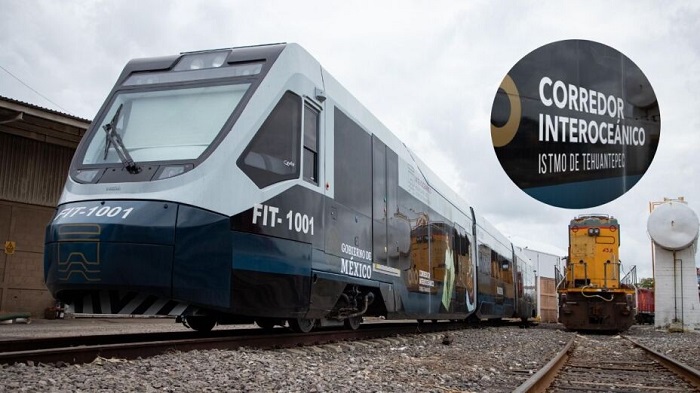Two of the main benefits that the new train systems will have for national (and global) trade are that they will reduce the cost of logistics and the delivery time of manufactured products.
The Transisthmian Train consists of two routes that link both oceans. The 308-kilometer Z Line runs from Coatzacoalcos to Salina Cruz, Oaxaca, connecting the Gulf of Mexico with the Pacific Ocean. The 328-kilometer FA Line goes from Coatzacoalcos to Palenque and Tabasco and connects with the Maya Train, which runs through the states of Chiapas, Tabasco, Campeche, Yucatán and Quintana Roo.
Interviewed about the start of operations of the Mayan Train and the Transisthmian Train, the president of Index Yucatán reported that the first does not yet provide cargo transportation service, but only passengers, but when it is ready for loading it will undoubtedly be a benefit. for Yucatan.
In fact, at a meeting between Governor Mauricio Vila Dosal and a group of businessmen in Washington, among whom he was present, officials from the United States Department of Commerce saw the construction of the two new railway lines in Mexico as a success, because it will energize the economy of both countries and there will be savings of millions of dollars because today crossing from the Pacific to the Atlantic through the Panama Canal costs each merchant ship a million dollars in fuel alone and the journey takes 8 to 14 days.

“You can transport the containers and stay in Yucatán or with the Mayan Cargo Train reach Quintana Roo or the Chiapas area. Everything will be interconnected,” he explained.
“The rail connection through the Maya and Transisthmian trains is a plus that we will have to bring new companies to Yucatan because exporters prioritize the logistics issue, since it represents a lot of money.”
“The ships that transport containers would unload them at the port of Salina Cruz and they are transported by trains,” explained the businessman.
“At Index we have reviewed this train project and we see an important benefit in the logistics part. The logistical factor and transportation cost sometimes means that companies do not come. In the last year there were two large projects in the automotive sector that were interested in setting up in Yucatán, but they required quite important logistics in terms of time and cost.”
Finally, Guerrero Lozano explained that global factories work on a tight schedule because they do not have large “stocks” due to the financial cost.
“We need the supplies to arrive on time so that production is not stopped and storage space is reduced. That is why, faster transportation will become essential for many operations worldwide“, the president of the Association of Export Maquiladoras (Index), Alejandro Guerrero Lozano concluded.
TYT Newsroom


